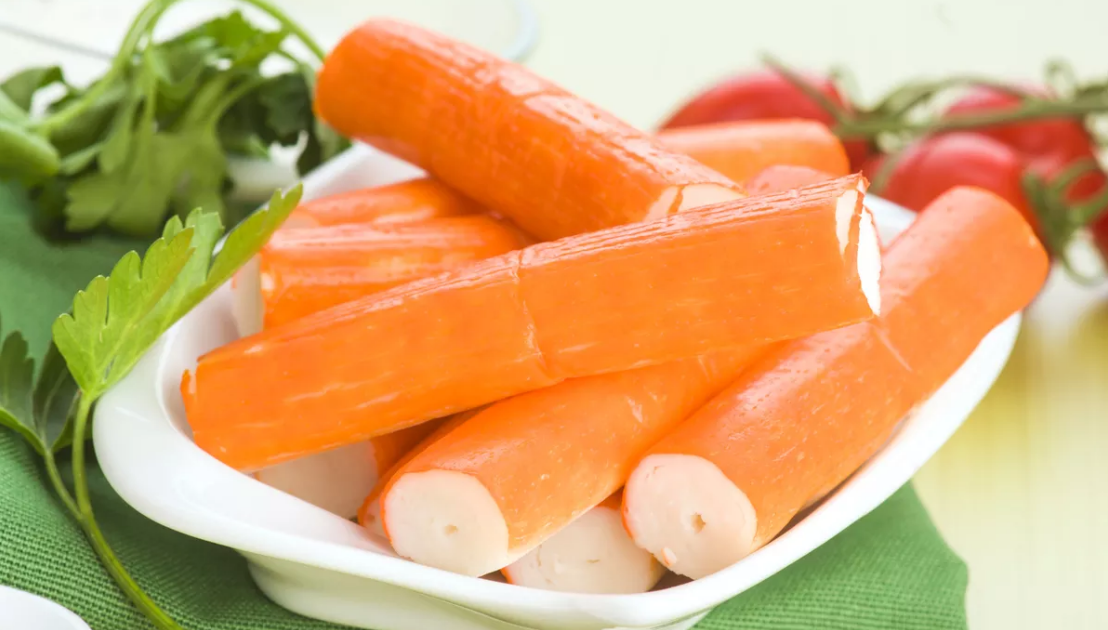Blanche Leridon is an essayist and lecturer at Sciences Po.
To discover
PODCAST - Listen to the club Le Club Le Figaro Idées with Eugénie Bastié
This post begins with a confession: in my pantheon of guilty food pleasures, surimi occupies a top place.
Somewhere between industrial mayonnaise from which it is inseparable, and Knacki from which it is the close fish cousin, surimi is the archetype of these industrial and regressive foods that we indulge in with moderation and delight.
But in recent weeks, these supposedly harmless little sticks, occasional tenants of my fridge, have found themselves at the heart of several controversies.
It's all politics and the crab meat had better watch out.
The most important of these controversies concerns the
Annelies Ilena
, a sweet name designating one of the largest pelagic trawlers in the world, with a surimi paste production factory on board, financed to the tune of 15 million euros by the Saint-Malo Fishing Company.
Outraged by the gigantism and inanity of the project, ocean defense associations demonstrated on Thursday February 15 to denounce the operation.
With its 145 meters long and 24 meters wide, this vessel that some call the
“ship from hell”
because
of “its destructive fishing practices”
can devour up to 400 tonnes of fish every day before releasing it. transform on board.
Defying all colorimetric logic, it is the fishing of
blue
whiting which makes up the little
orange
sticks with a well-kept recipe.
Also read: “The art of queuing in the polar cold for a galette des rois for 38 euros”
At the same time, the food is the subject of a vast campaign of demonization on the part of doctors and nutritionists, keen to eradicate the chemical stick from our children's diets.
Spearhead of this movement, the widely followed Dr. Jimmy Mohammed, a health influencer with a million subscribers, condemns, through Tiktok videos, Instagram or on TV sets, the food heresy that he represents.
From my personal Pantheon to the Purgatory of the knowledgeable, the decline of the surimi is inevitable and final.
Boosted with flavor enhancers and unusual additives, it would only be a harmful agglomeration of fish remains, and would only have the so-called color of crab.
A health, nutritional and ecological disaster, surimi would also be a vast economic deception, accused by the Foodwatch association of "cheapflation", a neologism of which economic science is particularly fond at the moment, which designates a modification of the recipe by replacing ingredients noble (in this case crab or, at the very least, something resembling fish) with cheaper or lower quality ingredients.
It is the “Le moisux” sticks from the Fleury Michon brand which are in the dock of Foodwatch, with their 11% less fish meat, while the price per kilo has increased by 40% between 2021 and 2023.
Let's not throw away surimi with the water of the English Channel.
Instead, let's put fish back into the stick, learn, raise awareness, but let's maintain the right to distance ourselves from “bad tastings”.
Blanche Leridon
Purchasing power, health, environmental protection, but also consumers' desire for transparency, product traceability, the role of influencers and social networks: my little sticks stand as supreme catalysts for the great challenges of our time.
They are no longer the distant, theoretical symptoms, but the concrete materialization in our lives and our daily lives, the debates even making their way into our refrigerators.
Should we stop eating it though?
In 2018, the funny David Castello-Lopes found the most delightful of answers.
In one of the videos in his series “Since when has it existed” he was interested in the origins of surimi and returned, mixing information and humor, to the history of this enigmatic commodity.
He reminded us of his birth in Japan in the 1970s, and his triumphant arrival in Europe in the mid-1980s. This chronology places them in these decades of meteoric rise of a globalized and limitless agri-food system, which we are witnessing today. today to the very broad questioning.
These questions, as salutary as they are essential, bring back to human level issues that are often beyond us.
They also and above all point out to us the unprecedented politicization of our plates - a politicization that the farmers' crisis in Europe embodies on a completely different scale.
If food is political, let's respond to its challenges with responsibility and moderation.
Let's not throw surimi out with the water of the English Channel.
Instead, let's put fish back into the stick, learn, raise awareness, but let's maintain the right to distance ourselves from “bad tastings”.

